MercoPress. South Atlantic News Agency
Tag: IMF
-
Thursday, September 23rd 2021 - 09:25 UTC
IMF's report on Brazil: performance better than expected; GDP projected to expand 5,3% this year
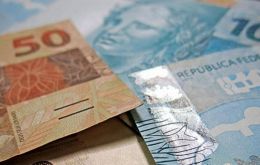
On September 10, 2021, the Executive Board of the International Monetary Fund (IMF) concluded the Article IV consultation1 with Brazil. Economic performance has been better than expected, in part due to the authorities’ forceful policy response. GDP regained its pre-pandemic level in 2021Q1 and momentum continues to be favourable, supported by booming terms of trade and robust private sector credit growth.
-
Tuesday, September 21st 2021 - 09:37 UTC
Argentine President appoints new ministers; measures coming up in coming days
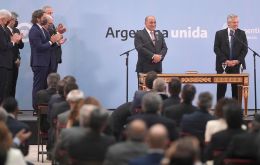
Argentine President Alberto Fernández Monday took the oath of office to the new members of his cabinet, with whom he intends to reconfigure his Government following a resounding loss at September 12's Mandatory, Open and Simultaneous (PASO) elections and its following political crisis.
-
Tuesday, September 21st 2021 - 08:46 UTC
Argentina will pay IMF US$ 1,9bn plus interests on Wednesday, but no budget funds contemplated in 2022
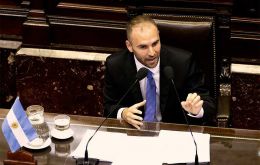
In the midst of the critical situation that emerged following the results of Sunday 12 September primary election, and the cabinet reshuffle a week later, the government of Argentine president Alberto Fernandez nevertheless confirmed that this week it will honor a US$ 1,9bn repayment plus interests to the IMF.
-
Saturday, September 18th 2021 - 09:00 UTC
IMF chief Georgieva faces ethics committee over her role when in the World Bank
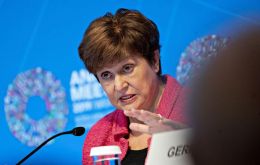
IMF Managing Director Kristalina Georgieva has stated she disagrees fundamentally with the findings and interpretations of an investigation of alleged irregularities she committed when she held a senior role at the World Bank.
-
Thursday, September 9th 2021 - 09:24 UTC
Ecuador and IMF reach agreement for disbursement of frozen US$ 6bn funds
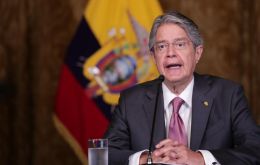
Ecuador and the International Monetary Fund, IMF, finally reached a technical agreement involving 6 billion US dollars, according to the country's economy minister Simon Cueva. The accord must still be approved by the IMF governing board but will unblock “international funds”, which have been frozen for months.
-
Friday, September 3rd 2021 - 09:49 UTC
IMF says Argentina needs to gradually lift currency exchange restrictions

The International Monetary Fund Thursday called for a “credible and solid” plan on the part of Argentina and recommended the country gradually loosened all restrictions on foreign currency exchange.
-
Tuesday, August 24th 2021 - 09:34 UTC
IMF largest allocation of SDRs, US$650 billion comes into effect; Ms Georgieva calls for wise use of funds
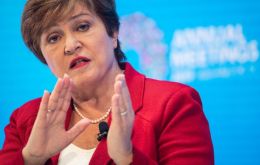
The Managing Director of the International Monetary Fund (IMF) Kristalina Georgieva announced on Monday the largest allocation of Special Drawing Rights (SDRs) in history—about US$650 billion— and described the operation as a significant shot in the arm for the world and, if used wisely, a unique opportunity to combat this unprecedented crisis.
-
Tuesday, August 3rd 2021 - 08:59 UTC
IMF okays SDRs for countries beleaguered under the covid-19 pandemic

The International Monetary Funda's (IMF) Board of Directors Monday approved the disbursement of SDRs for a total amount of US $ 650,000 million as a relief measure amidst the coronavirus pandemic.
-
Wednesday, June 23rd 2021 - 09:46 UTC
Argentina skips default thanks to agreement with Paris Club
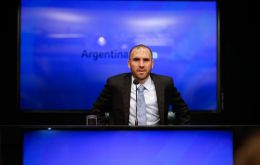
Argentina's Economy Minister Martín Guzmán Tuesday announced that the Paris Club had agreed to give his country until March 31, 2022, to pay the US $ 430 million in instalments while the rest of the debt is renegotiated.
-
Thursday, June 10th 2021 - 09:30 UTC
Bitcoin legal tender in El Salvador, first country ever
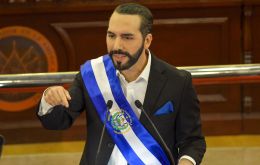
The Parliament of El Salvador has passed with 62 out of 84 votes a bill submitted by President Nayib Bukele to classify Bitcoin as legal tender, thus becoming the first country in the world to adopt a cryptocurrency. Its use as legal tender will go into law in 90 days.
